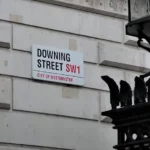This week, BGC (the Betting and Gaming Council) has openly embraced new advertising rules introduced by the UK authorities. On July 25, new restrictions on gambling ads were presented by the DCMS, focusing on enhancing safety and trust.
The UK's Betting and Gaming Council Champions New Rules for Advertising
Last update: May, 2024

Under these new directives, the Government aims for social media and online entities to clamp down on age-sensitive advertisements targeting youngsters, especially those related to gambling. online casinos These platforms must uphold systems and processes proportionate to these objectives. According to the Government, these measures will heighten safety, transparency, and trust among consumers.
Michael Dugher, heading the Betting and Gaming Council, greeted the new directives positively. He expressed that the BGC has consistently advocated for these changes, understanding their necessity.
Some BGC member organizations are already ensuring that online ads for regulated products reach only those legally eligible to bet. All target marketing on social media by BGC's members now focuses on individuals over 25. Earlier this year, the BGC urged social media platforms to implement more stringent controls.
The revitalized advertising code also extends to football clubs, curtailing them from overtly promoting betting odds and sites on their social networks due to these being popular with younger audiences, as noted by the BGC.
BGC members have unified in a campaign urging the wide public to reject betting ads online.
Dugher remarked: “We wholeheartedly welcome these new directives from Sir John Whittingdale MP, which aim to shield minors from age-restricted advertisements. Following our plea to the Government for action, recognizing the demand for change was imperative.
“BGC affiliates have made significant strides in ensuring their adverts only engage the correct demographic. The Government's fresh guidelines ensure platforms must comply equally. Our affiliates are eager to continue fostering industry-wide improvements, alongside supporting employment and business ventures in the UK.”
The BGC expresses a desire for more synnergy on topics like establishing advertising suppression tools within social apps, to halt betting and gaming adverts reaching those self-exiled from gambling through GAMSTOP, the national self-exclusion program.
Additionally, the organization claims its members need social media collaboration in safeguarding vulnerable demographics and managing ad frequencies.
The UK's regulated betting and gaming sector facilitates 110,000 roles and injects £4.2 billion in taxes and £7.1 billion into the economy. Even so, the BGC is disheartened by recent Gambling Commission data showing that problem gambling is prevalent at 0.3% among adults, with 22.5 million adults engaging in monthly betting activities.






















